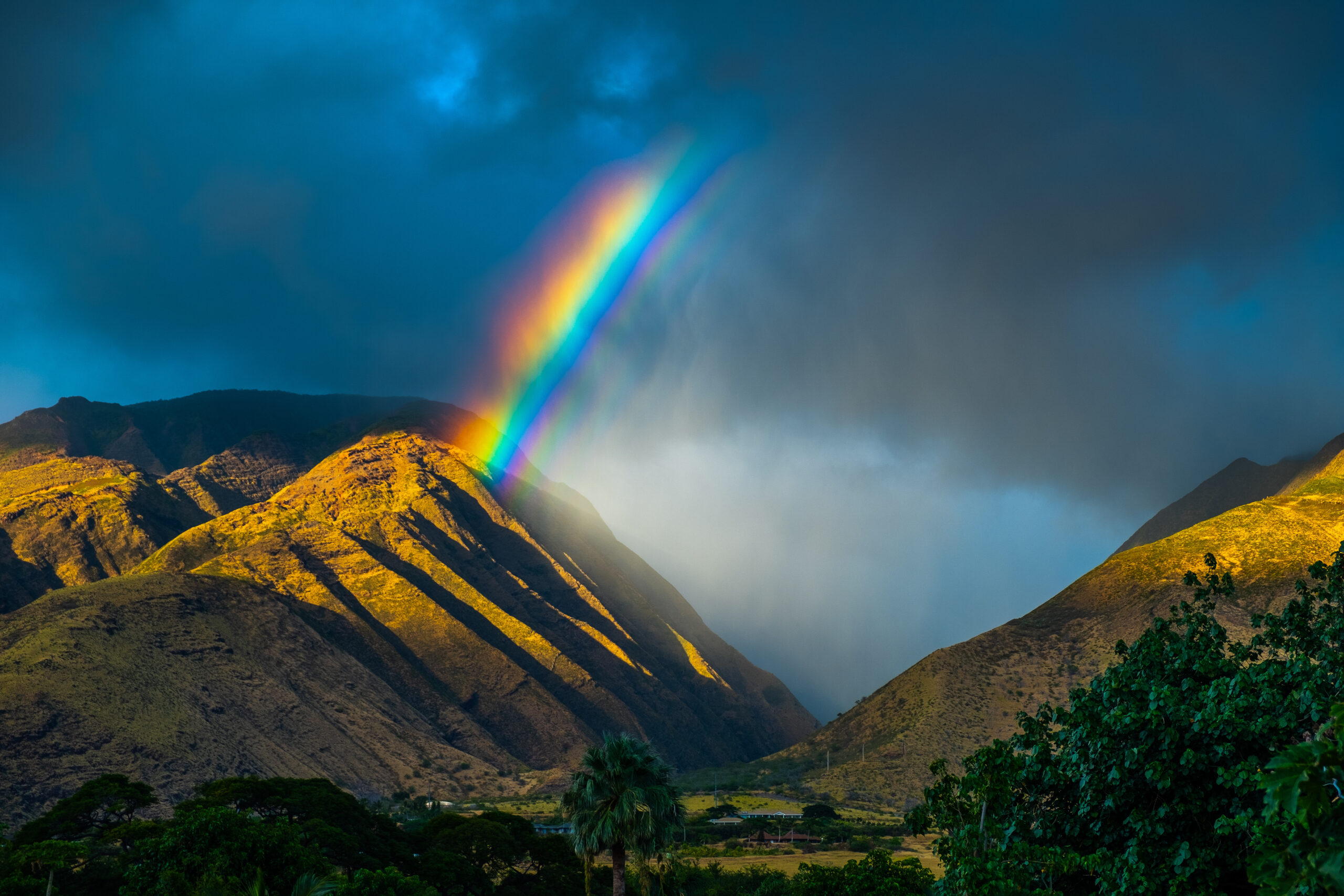
Read: Genesis 8-9
“When the bow is in the clouds, I will see it and remember the everlasting covenant between God and every living creature of all flesh that is on the earth” (Genesis 9:16. NRSV).
You don’t really bond with people until you’ve gone through some stuff together.
I learned this in a big way the night our house caught fire. Lightning was the culprit, and although the structural damage was significant, all humans and animals made it to safety.
Our pastors called the next day, eager to help. They were surprised when we said, “Thanks, but we don’t really need anything. The neighbors have us covered.” And they did. From the moment the fire trucks came screaming into the neighborhood, our neighbors were on it. They took us in—pets and all—on that rainy night. But that was just the beginning. For the entire seven months that it took for our house to become habitable again, the neighbors continued to rally around us with food, friendship, and generous quantities of medicinal alcohol. My husband and I will never forget it.
So, am I glad it happened? Of course not. But it would be ungrateful not to acknowledge that the fire forged some strong and lasting friendships. We liked our neighbors before; we love them now.
The end of the Bible’s flood story bears witness to a similar transformation in God’s relationship with creation. They’ve been “through some stuff” now, and while it’s made things more complicated, there is a richness that seems to have sprung from shared pain and vulnerability.
If you doubt that God is vulnerable in this story, remember what the story’s narrator said back in Genesis 6:6 about God being “grieved to [God’s] heart” Granted, it’s a chosen vulnerability, but it is still very much evident after the flood subsides. At the end of chapter eight, the narrator gives us a glimpse of God in another vulnerable moment. After inhaling the pleasing odor of Noah’s thanksgiving sacrifice, God says “in his heart”:
I will never again curse the ground because of humankind, for the inclination of the human heart is evil from youth; nor will I ever destroy every living creature as I have done. As long as the earth endures, seedtime and harvest, cold and heat, summer and winter, day and night, shall not cease (Gen 8:21-22).
Isn’t it interesting that this poignant promise is addressed, not to Noah, but to God’s own heart? It’s as if God is writing these words on a sticky note for the fridge. Scrawled across the top is, “NOTE TO SELF.”
And did you notice that God is not naïve about the state of the human heart? One of the reasons for the flood was God’s recognition that “every inclination of the thoughts of their hearts was only evil continually” (Gen 6:5). Now, with a whole lot of flood water under the bridge, things aren’t appreciably better. Ellen Davis sums it up this way:
Instead of romantic optimism, God’s statement is one of utter realism: This is how humans are. The same ‘evil impulse’ that pained God enough to destroy the world is now the very thing that moves God to foreswear total destruction.*
Why such a difference? Who knows. Maybe it’s because they have been “through some stuff.” In any case, this is the point in the story when God sets the rainbow in the clouds “as a sign of the covenant between me and the earth” (Gen 9:13).
Rainbows are universally understood as signs of hope, love, and joy. They are surely that and more. But notice that in this passage, the rainbow is primarily a reminder from God to God. It’s another “note to self” that God makes so that the next time humans mess up (and we will), God will remember to show mercy. Here is Ellen Davis again:
The covenant with Noah is the enduring sign of God’s willingness to work with the concrete, flawed reality of human nature: “the impulse of the human heart is evil from youth onward.” The bright bow of colored light in the clouds signals God’s preference for relationship, however troubled that may be, over the more peaceful option of solitary mastery of the universe.*
As a deeply flawed human being on an increasingly precarious planet, I find that incredibly comforting.
Ponder: How do you feel about God’s “chosen vulnerability”? How does the cross fit into that habit of God’s heart?
Pray: Thank you for choosing to be in relationship with us. May these difficult times forge us into stronger relationship with you, one other, and all creation.
*Ellen F. Davis, Opening Israel’s Scriptures (New York: Oxford University Press, 2019), 24-25.
